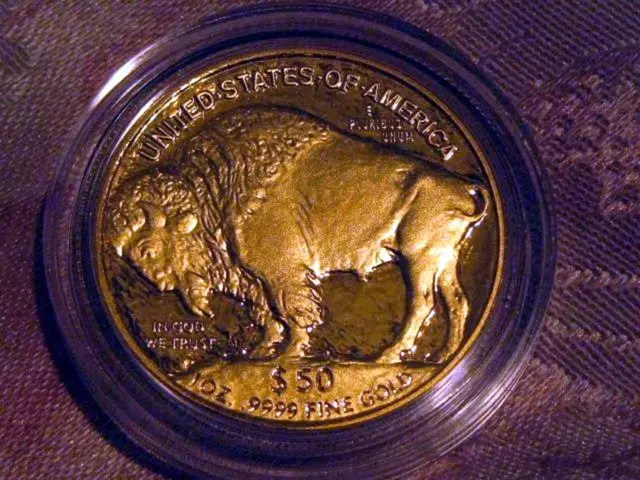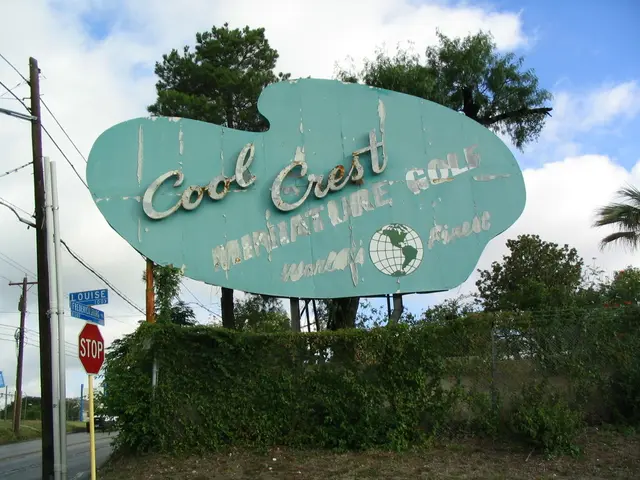Trump Affirms He Warned TSMC of Potential 100% Tax Penalty for Not Establishing Operations in U.S.A.
Former President Donald Trump asserted at a recent Republican National Congressional Committee event that he had cautioned Taiwan Semiconductor Manufacturing Company (TSMC) executives about potential punitive taxes if they declined to establish semiconductor manufacturing facilities in the United States.
In his address, Trump criticized the previous administration's subsidy deal with TSMC, which was granted a $6.6 billion grant for its new factory in Phoenix, Arizona.
Trump's statement has sparked debate over the role of government subsidies and the U.S.'s broader strategy to strengthen its semiconductor manufacturing sector, given concerns about national security and economic competition with China.
Trump reportedly told TSMC executives that they could face escalating taxes, ranging from 25% to 100%, if they opted against investing in U.S.-based production. He emphasized that companies like TSMC, with billions in revenues, should not rely on taxpayer-funded incentives to build in the U.S.
TSMC, the world's largest contract semiconductor manufacturer, has been under scrutiny as the U.S. seeks to minimize its reliance on foreign chipmakers, particularly following supply chain disruptions and geopolitical tensions with China.
As part of its U.S. expansion strategy, TSMC announced plans to invest $100 billion in American operations, including the construction of multiple new chip production facilities over the coming years.
Despite the massive investment, Trump remains critical of the subsidies, suggesting that TSMC's decision to build a plant in Arizona was driven more by government pressure than corporate need.
Critics argue that such a tax could harm international trade relations and complicate efforts to boost the U.S. semiconductor industry. Trump's remarks have fueled the ongoing debate over the U.S. government's attempts to attract more high-tech manufacturing.
With the increasing demand for semiconductors, particularly due to the rise of artificial intelligence and electric vehicles, the stakes for international companies like TSMC and their investment decisions have never been higher. Stay tuned for more on TSMC's expansion in the U.S., including its multi-billion-dollar investment plans.
It is important to note that while TSMC has expressed concerns about potential tariffs on Taiwanese semiconductors, Trump's specific threat to TSMC for not building plants in the U.S. appears to be a misunderstanding of broader tariff threats and economic policies affecting the semiconductor industry.
Sources:1. TSMC considers delaying Arizona plant expansion due to trade tensions with the U.S.2. TSMC warns tariffs could jeopardize Arizona factory expansion3. Trump threatens to slap tariffs on Chinese semiconductors4. U.S. tech leaders call for end to Trump's tariffs on China semiconductors
- The ongoing debate about semiconductor manufacturing in the U.S. extends to policy-and-legislation, with former President Donald Trump advocating against government subsidies and flatly stating potential punitive taxes for companies that decline to invest domestically.
- TSMC, given its role as the world's largest contract semiconductor manufacturer, has been a key figure in this discussion, considering delaying its Arizona plant expansion due to trade tensions with the U.S.
- Trump's comments have raised eyebrows within the general-news sphere, as they seem to overshadow broader tariff threats and economic policies impacting the semiconductor industry.
- In light of the increasing demand for semiconductors, driven by technological advancements in areas like artificial intelligence and electric vehicles, the global market for these components is intensely competitive, particularly between the U.S. and China.
- Despite this tension, TSMC has pledged to invest $100 billion in American operations, aiming to construct multiple new chip production facilities. Financing for this endeavor will likely involve significant investing from business entities worldwide.
- Critics voice concerns that such tax threats could harm international trade relations and complicate efforts to boost the U.S. semiconductor industry. They argue that these measures could run counter to long-term economic development strategies and effective supply chain management.
- Beyond the Arizona plant, TSMC's U.S. expansion strategy and multi-billion-dollar investment plans will be closely watched in the realm of technology, business, and global trade.








